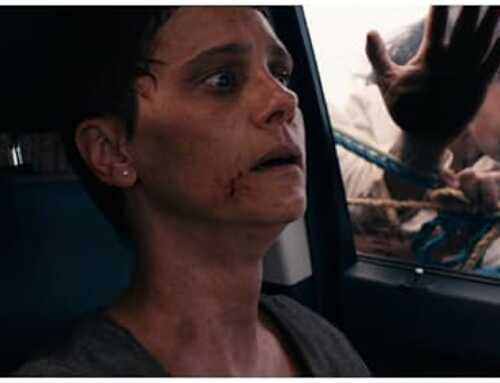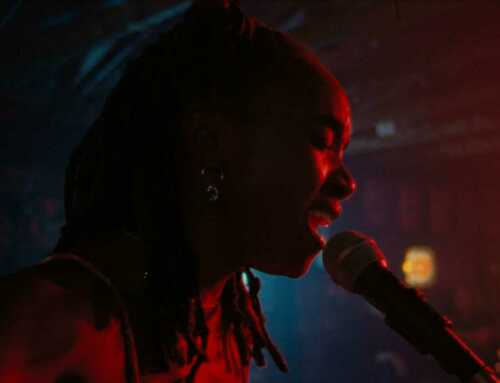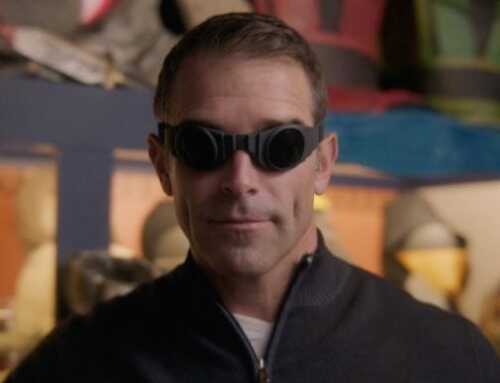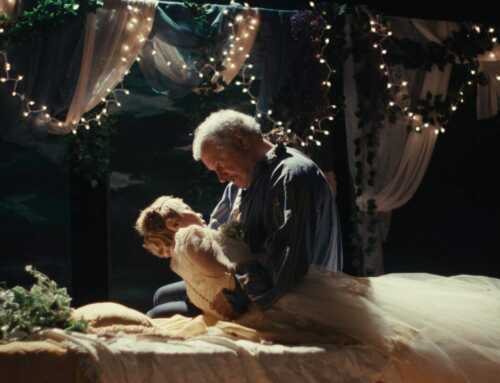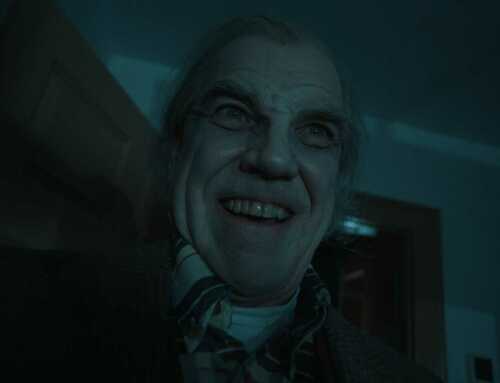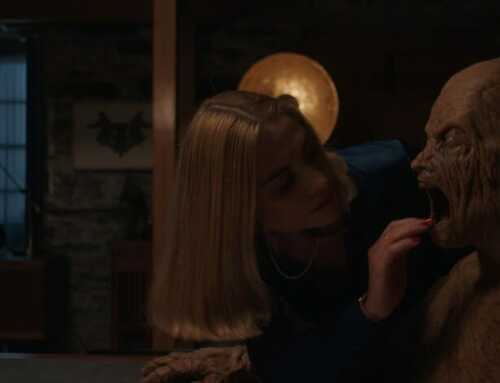Every Sunday, after all the drinks have been downed and the last Lyft has departed, The ETA Bar in Highland Park shutters its doors to the general public and transforms into ground zero for a groundbreaking dream study lead by Douglas University’s Lucid Labs and the brilliant but controversial Dr. Rose Hallard. Public scrutiny of Dr. Hallard’s work is increasing, with a growing number of people starting to question whether she’s gone too far. Will you work to vindicate her efforts and bring her plans to fruition or ally with the rebellion to put an end to her madness?
The innocuously-titled Dream Study #114 is the latest immersive experience from Collaborative Arts LA, combining live theater with a spy vs. spy team-based escape room. After inhaling some aromatic oil to induce a lucid state, participants are asked a simple question, the answer to which determines which side of the war you end up on. This is an important decision, not only because it determines your primary quest-giver and set of puzzles required to accomplish their respective goals but also because this is the last time you can be sure of who your friends and enemies are. Depending upon your answer, you’re given instructions to seek out either Dr. Hallard (Dasha Kittredge) or rebel leader Neil Blythe (Mikie Beatty) and you make your way into the through the doors, into a space existing on the edge of reality, a blend of the bar in which the dream study was conceived and fragments of Dr. Hallard’s experience and imagination.
The visuals have an improvised, abstract aesthetic that might be seen as betraying the very independent budget but also contribute to the sense of a dream bound together with elements of waking life. Images and articles referencing the history of the study are contrasted with schematics, ordinary items encoded with strange symbols, and at the center, the dream machine itself, composed of an old radio and a network of brightly-lit tubes. The bar itself is bathed in hues of red and violet and is fairly intimate in scale, with every few feet being occupied by either an actor or some piece of the puzzle.
The actors themselves play a dual role in fleshing out the story and giving out clues to solve the puzzles with varying degrees of emphasis on each role. The various researchers in lab coats will engage with you on occasion about certain plot elements, but their role is largely to wait for participants to come up asking for more insight into a puzzle or to seek them out and drop hints if they seem like they’re struggling. Neil and Rose, on the other hand, get the ball rolling in terms of setting you on your way but their purpose is primarily to act out a series of vignettes that flesh out their relationship, respective ideologies, and to justify the motivation to further their goals. Beyond that, they will approach you personally at certain points in your journey to encourage you and reinforce the urgency of your mission.
Despite the lack of visibility and low-key nature of Dream Study #114 compared to some of the larger immersive theater productions out there, the caliber of performance is just as high with Mikie Beatty being a mainstay of The Hollywood Fringe Festival since 2010 (including a role in Snow Fridge, which we loved) and Dasha Kittredge coming from Delusion, Creep, The Willows, pretty much every major theatrical horror production in the last few years. What I particularly enjoyed about these characters are written and performed is the moral ambiguity, with both leads coming off as fundamentally well-intentioned people with different ideas about the acceptable cost of progress. Working as a rebel, I felt my mission was just but I still felt conflicted about the ultimate result of my actions. Maybe it’s just my love for mad scientist characters #HerbertWestDidNothingWrong. Rounding out the cast, we have veteran voice and theater actor Daniel Hagen as Lucid Lab director Dr. Jack Fletcher and Kate Feld, an operatic soprano who introduces the narrative with an ethereal aria.
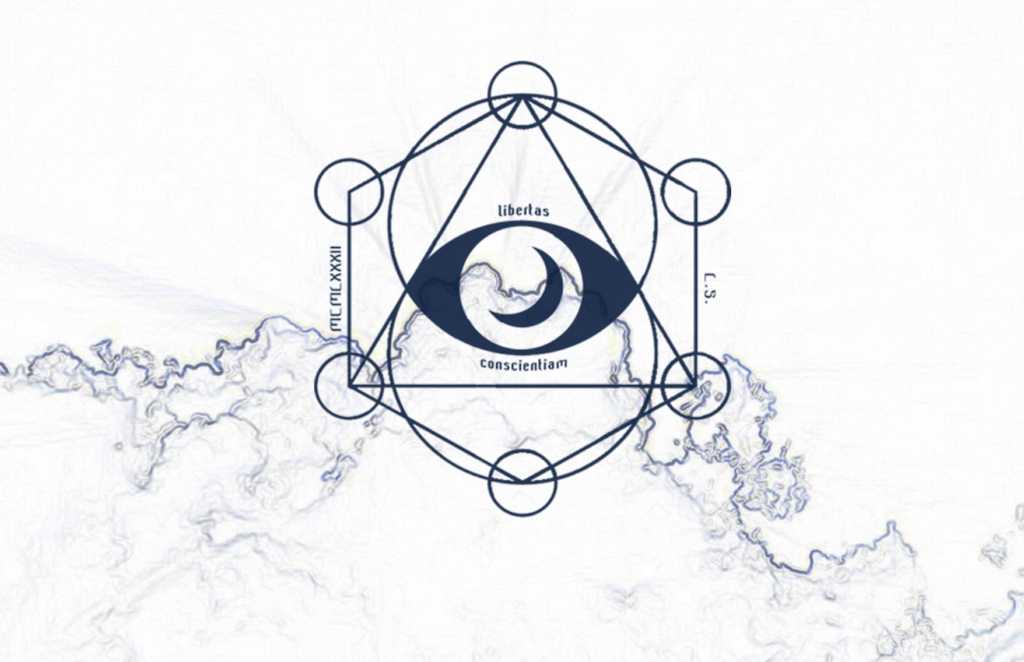
The puzzles are designed to pose a certain level of challenge but this is tempered by the desire to appeal to a general, more theatrically-minded audience that will appreciate puzzles that are integrated into the narrative and don’t create barriers to enjoying that narrative by being excessively obtuse. I won’t say too much about how they function for obvious reasons, but as a relative amateur with this sort of thing, I managed to reach the solution with the help of a couple of allies shortly before the end of the show. There’s a great amount of flexibility in how challenging you want the experience to be depending upon the approach you take, especially given there is no hard limit in how long you can take depending upon when you arrive, as you can theoretically show up for the 7 PM block and not leave until they wrap things up around midnight. Experienced puzzle solvers are free to attempt the puzzles on their own and interaction with the actors is largely optional to have sufficient information to figure things out, though avoiding them completely might undermine the power of the performance. Less experienced players will want to make the most of these resources. Despite their in-character allegiances, the actors do want you to succeed, so sufficient prodding about relevant information will typically lead to useful guidance, though you may not want to go probing the leader of the enemy faction. I didn’t attempt it, but it seems like a bold move.
Now I hear you thinking (yes, I hear your thoughts) “that sounds great, but I don’t have $100 to drop on a fancy immersive theater ticket with the holidays coming up.” $30, all of this for only $30. Not only that but if you solve the puzzle, you get a free cocktail. Those are normally $13 (I tried both the Astral Plane and Night Rider, both were nice but I recommend the Night Rider) so if you count that, you’re getting a short vocal performance, an escape room, and an immersive theater performance for $17. That’s not a bad deal. One caution is that while they suggest that you may arrive at any point in your assigned time slot (i.e. if your time slot is 7, you can arrive from 7-8) if you opt for the 10 PM slot, you need to arrive at 10 to ensure you don’t miss any plot points and have sufficient time to solve the puzzles. Dream Study #114 is not as sweeping in its scope as something like Delusion and hardcore escape room fans might find the challenge of its puzzles somewhat pedestrian but the result is more than the sum of its parts, with the theatrical side giving weight and purpose to the puzzle solving and the puzzles unlocking facets of the narrative that would go otherwise unappreciated. I highly recommend seeing this show, but be quick as the door to the dream world closes on December 9th.
To purchase tickets, visit drhallarddreams.com


